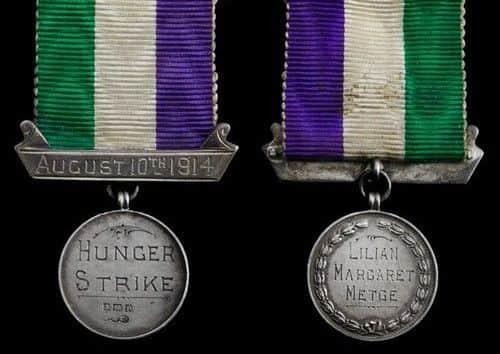Suffragette hunger striker's medal goes on display at museum
and live on Freeview channel 276
The medal was presented to Lillian Metge, a founding member of Lisburn Suffrage Society, in recognition of a hunger strike she undertook in August 1914 while on trial for her alleged role in blowing up the east window of Lisburn Cathedral.
Mrs Metge was a member of the Women’s Social and Political Union (WSPU) – a women-only political movement and leading militant organisation campaigning for women’s suffrage in the United Kingdom from 1903 to 1917. She was arrested on August 1, 1914 in connection with the attack on Lisburn Cathedral, which caused only minor damage. While on trial she went on hunger strike, and was later awarded the medal in recognition of her sacrifice.
Advertisement
Hide AdAdvertisement
Hide AdThe medal was acquired at an auction in London and can be viewed in the museum’s new temporary exhibition ‘A voice of her own? A women’s place after the Great War’, which opened yesterday. Admission is free.


“It is wonderful to have the Metge medal where it belongs, in Lisburn,” said Dr Margaret Ward, historian and expert on the Irish suffrage movement.
“Mrs Metge was awarded the medal after the First World War had begun, so although the WSPU had immediately called off the militant campaign, they still honoured those who had undertaken militant action on the brink of war.”
Describing the acquisition of the medal as “a hugely significant addition to the museum’s collection”, local DUP Alderman Paul Porter said that while he did not agree with the methods employed by Mrs Metge and her fellow militant suffragettes, it was “an important chapter in the local ‘votes for women’ campaign.”